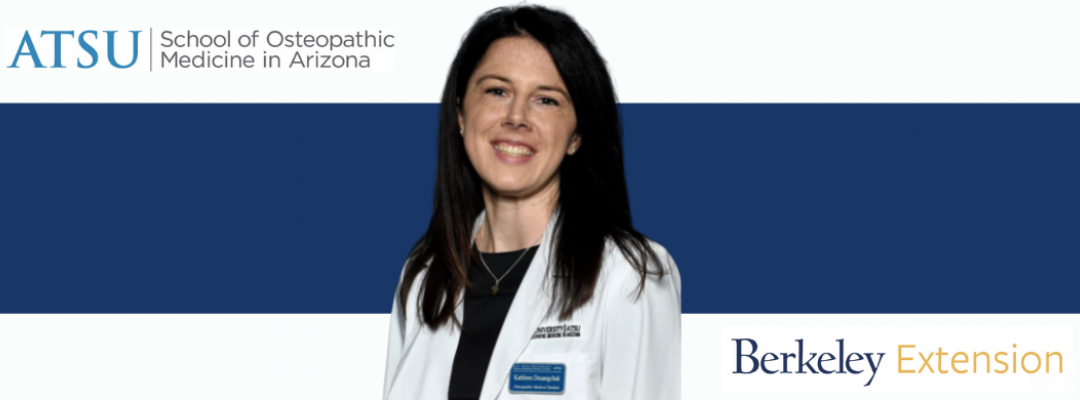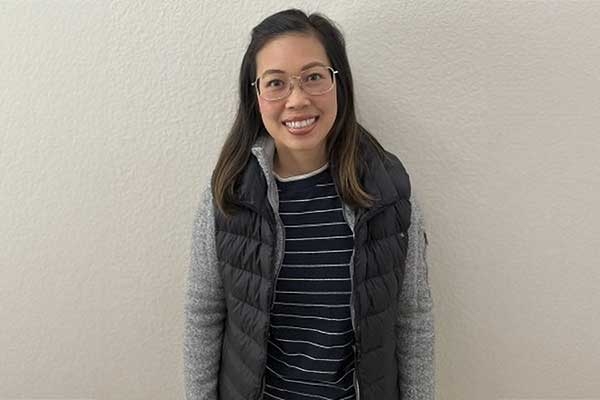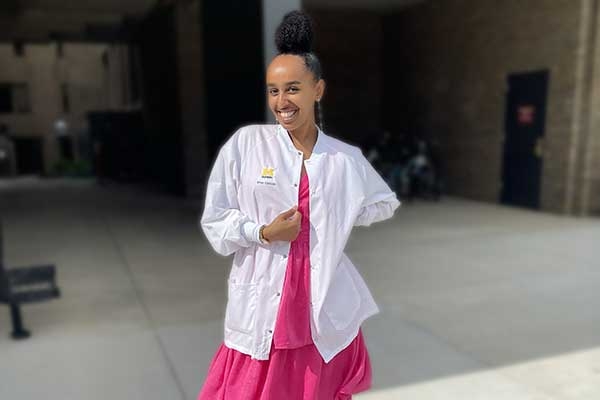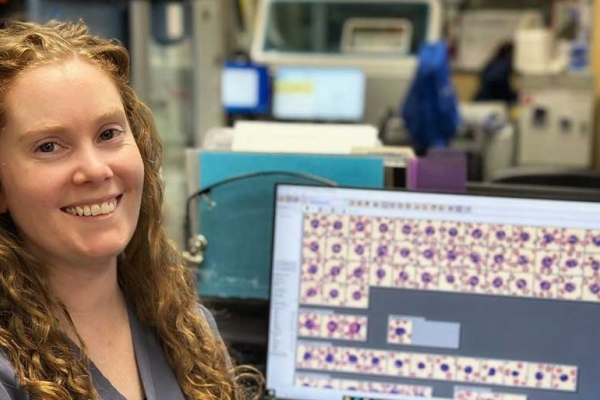Seven years ago, Kathleen Douangchak’s life looked a little different. You could find her all the way in Burkina Faso, West Africa, teaching English and science to children and working with the local community through the Peace Corps. With a bachelor’s degree from UC San Diego in cognitive science, she loved having the opportunity to work with teens on a subject area she was passionate about.
When her time in the Peace Corps came to an end, Kathleen started a new role in the San Francisco Bay Area tutoring math to elementary students at McGraw Hill. She enjoyed engaging with her students and seeing their progression over time.
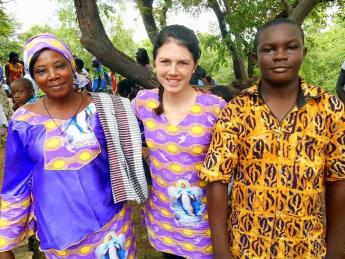
Kathleen’s post-college jobs made her realize what she loves most: working one-on-one with people. But what really triggered her interest in pursuing medicine was seeing the health disparities back in West Africa and other developing countries.
This caused her to take a leap of faith and start a new career journey—entering health care. “I really enjoyed the one-on-one interaction in comparison to teaching an entire classroom,” she describes. “That’s one part of medicine I really enjoy. You get to work with your patients, one-on-one, and educate them about health and disease but also guide them in achieving their goals.”
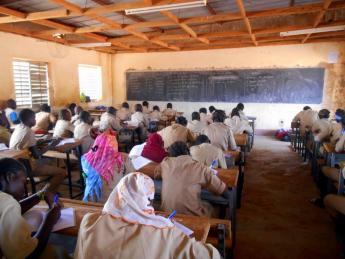
With dreams of becoming a doctor, she knew this would combine the best of both worlds: using her science background while working directly with clients.
So her next step was finding a program that would best prepare her to be a competitive applicant to medical school. That’s when Kathleen found our Post-Baccalaureate Health Professions Program. “It seemed like a perfect fit,” she recalls. “When I decided to apply, I was living in Southern California and was excited to move back to the Bay Area upon admission.”
Fast-forward to present day, Kathleen is currently a student at A.T. Still University–School of Osteopathic Medicine in Arizona (ATSU-SOMA) and part of the class of 2023. Although she is deep into her textbooks, she found time to check in with us and share what medical school is really like!
What made you decide to study with us? What were you looking to achieve?
There were a lot of classes I needed to take that UC Berkeley Extension offered, along with having the opportunity to be a part of a cohort. I also liked the fact that I could receive a letter of recommendation at the end of the program. I was also attracted to the opportunity of advising throughout the program.
At UC Berkeley Extension, there are a couple of different routes for students. There are the grade-enhancement and the career-changing directions. I was kind of a combination of both. I definitely had pre-med courses I needed to take, but I also wanted to boost my GPA. I liked that Berkeley had the option to do so.
Tell me about the courses you took and what you enjoyed the most.
I took a lot of them such as Organic Chemistry I, General Biology I and Physics I, along with other courses that some medical schools recommend. I enjoyed the Medical Microbiology and Mammalian Systemic Physiology courses the most. They were really fun to take!
What was your experience like in the classroom?
I went from a small classroom size in high school to a huge classroom size in college. I never thought it would be an issue in my undergraduate studies to be in a larger class, but I soon realized it wasn’t great for my learning style.
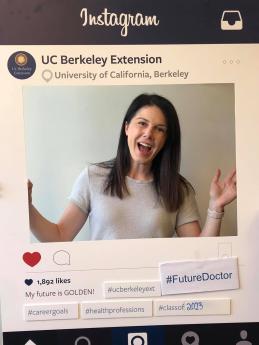
It was nice to get back to a smaller class size in Berkeley where I could get more one-on-one time with the instructors. They care so much about teaching. I felt like they were always going out of their way to teach us, whether they were doing it after their full-time jobs at night or doing it part time. They all wanted to help us progress.
The interactions felt personable and they were always approachable. There also wasn't a competitive environment in the classroom like other universities, and the classes worked with my schedule, which was great!
Doing well in a post-bacc really strengthened my medical school application. Joining the program showed universities I was committed to this field. I took the time and money to participate in the program in comparison to just taking classes here and there at a community college.
How would you say the program prepared you for medical school?
I feel like I was able to change my study style compared to when I was in undergrad, which helped me a lot. You have to learn really quickly in medical school, so the way I study now is definitely an improvement.
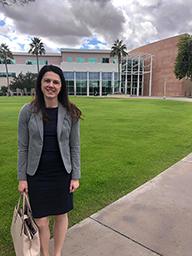
For example, sometimes the instructors would let me record their classes. This allowed me to listen to their lesson once again on my commutes to class and work. I realized I needed to hear the material more than once to get it ingrained in my head. Being an adult learner and being open to changing my study habits was important for me.
I think it was helpful to be surrounded by people who were also planning on going to medical school after taking Extension courses. By the time medical school had started, I felt more prepared than I would have if I went straight there after undergrad.
Why do you think other students should participate in the post-bacc health program?
Participating in the program shows your dedication to medical school. It also shows the school that you are the most prepared. Joining the post-bacc is a commitment and it will show that in your application. You are taking many difficult classes and showing the admission teams that you want to be prepared as possible compared to doing the bare minimum.
My time at Extension actually came up in my interviews for medical school. They noticed I performed a lot better in my post-bacc compared to my undergraduate program. I explained what I had learned in the program and how I have changed my study strategies.
What advice would you give to future post-bacc health students on how to best succeed?
Make sure you dedicate enough time to study and take advantage of all your resources, like the advisers! Everyone was super helpful. Also, believe in yourself. That is half the battle of getting into medical school. There is so much work and are hoops you have to jump through. Just keep going at it!
